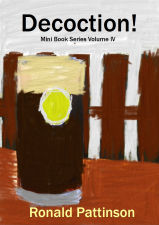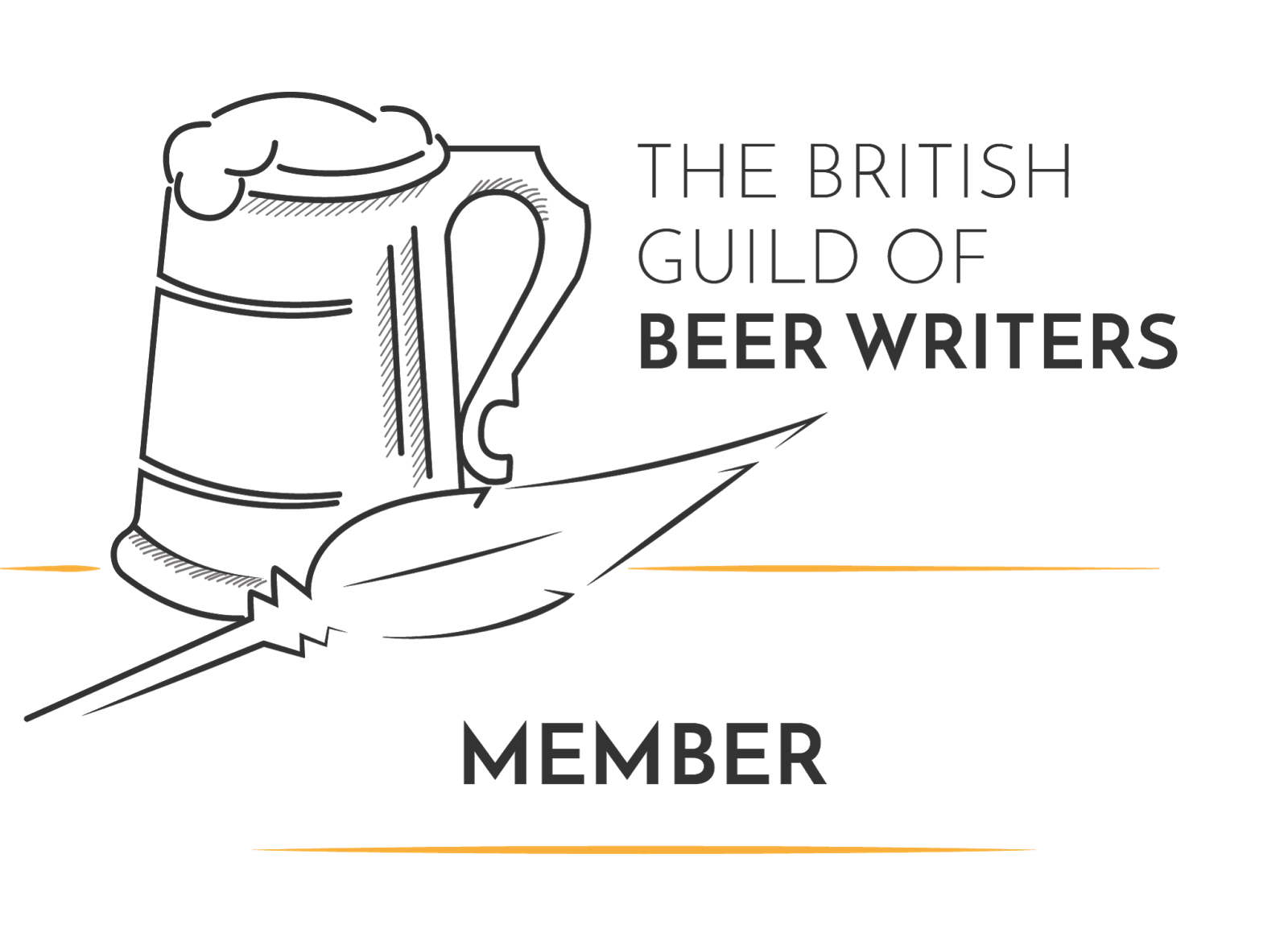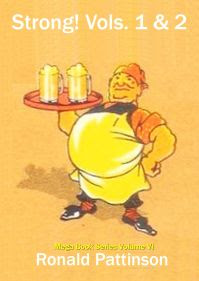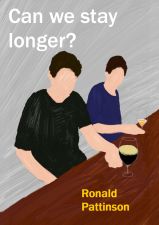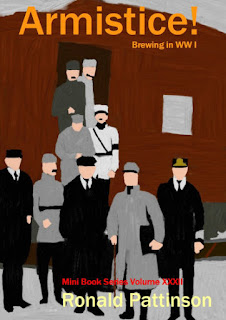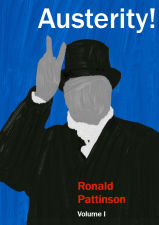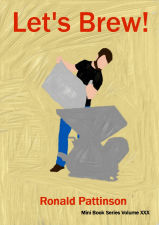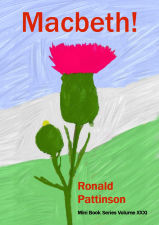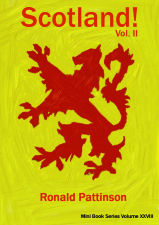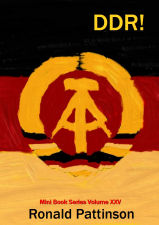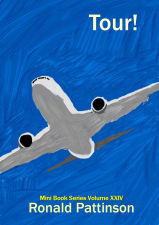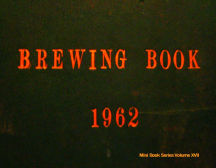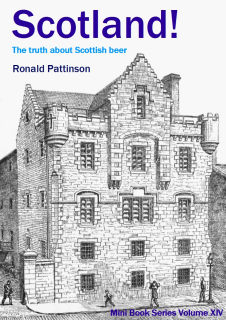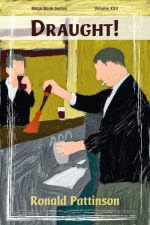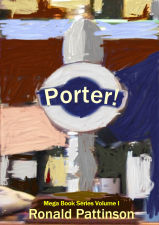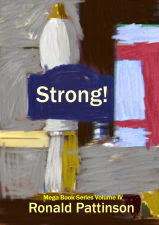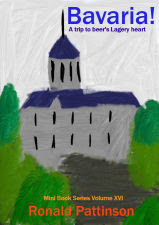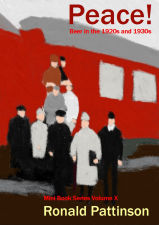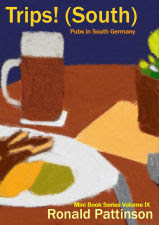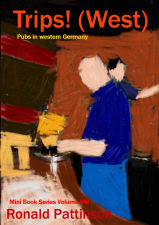Wednesday 31 July 2013
Franconia day two (part two)
We get back to Ebermannstadt at a reasonable time. Reasonable enough for it to be reasonable to sample more of the town's delights. We did Schwanenbräu yesterday. Where today?
"What about our hotel's beer garden?"
"Where's that, dad?"
"Not far." That gets a look. Andrew is very cynical for one so young. It really isn't far. "It really isn't far."
On the very short walk, we pass Brauerei Sonne. It looks reassuringly operational. The brewery tap, Gasthaus Sonne, is resolutely shut because of "Betriebswechsel". I hope it does reopen. It looks rather sad there on the corner of the square, dessicated plants behind its windows.
Gasthof Zur Post's beer garden is low key. Very low key. There appear to be no staff when we arrive. Turns out they've cleverly disguised themselves as customers by sitting chatting with other guests.
There are two basic types of beer garden in Fanconia. There's the Bierkeller, where row upon row up tables and benches are arranged under a forest of towering trees. Then there are ones like, er, someone's back garden. Where the trees are of the fruit kind and more modest in size. This is the latter type.
A group of children play football in the garden. More guests arrive leaving their bikes leant up against a fence. Andrew is shocked. No-one locks their bikes. He's never seen such behaviour before.
"Fancy a new mountain bike, Andrew?"
We order food and watch swallows dart between the gables, banking and diving like dogfighting fighters. Sadly, Zur Post sells Mönchshof beers. I get a Kellerbier. It looks like this:
and tastes like beer. Things rather more important than beer are occupying me.
"Ah . . . there's metal in my food . . " Andrew fishes a small piece of metal from his mouth. Part of his braces. Whoops. Here carefully eats around the crust of his sandwich, which he clearly holds to blame.
We linger long but consume little. Chatting and letting the evening flow slowly by. When the swallows move on at dusk, it's time for us to depart, too.
"What about our hotel's beer garden?"
"Where's that, dad?"
"Not far." That gets a look. Andrew is very cynical for one so young. It really isn't far. "It really isn't far."
On the very short walk, we pass Brauerei Sonne. It looks reassuringly operational. The brewery tap, Gasthaus Sonne, is resolutely shut because of "Betriebswechsel". I hope it does reopen. It looks rather sad there on the corner of the square, dessicated plants behind its windows.
Gasthof Zur Post's beer garden is low key. Very low key. There appear to be no staff when we arrive. Turns out they've cleverly disguised themselves as customers by sitting chatting with other guests.
There are two basic types of beer garden in Fanconia. There's the Bierkeller, where row upon row up tables and benches are arranged under a forest of towering trees. Then there are ones like, er, someone's back garden. Where the trees are of the fruit kind and more modest in size. This is the latter type.
A group of children play football in the garden. More guests arrive leaving their bikes leant up against a fence. Andrew is shocked. No-one locks their bikes. He's never seen such behaviour before.
"Fancy a new mountain bike, Andrew?"
We order food and watch swallows dart between the gables, banking and diving like dogfighting fighters. Sadly, Zur Post sells Mönchshof beers. I get a Kellerbier. It looks like this:
and tastes like beer. Things rather more important than beer are occupying me.
"Ah . . . there's metal in my food . . " Andrew fishes a small piece of metal from his mouth. Part of his braces. Whoops. Here carefully eats around the crust of his sandwich, which he clearly holds to blame.
We linger long but consume little. Chatting and letting the evening flow slowly by. When the swallows move on at dusk, it's time for us to depart, too.
Tuesday 30 July 2013
Franconia day two
I earmarked our second day for a trip to Bamberg. Lovely town and not far. Just a short hop and jump on the train.
We hit town a bit before eleven. It's already pretty hot.
"Where are we going, dad?"
"Fässla."
"Is it far?"
"Half way into town. I've got it all worked out."
Except that I haven't counted on one thing: the popularity of Fässla for early shopping*. There isn't a seat to be had.
"Let's try Spezial."
"Where's that, dad?"
"There," I say, pointing directly over the road. "I told you everything was under control."
Luckily, Spezial doesn't prove me a liar. We can't get a seat outside, but plenty are free inside.
Soon we both had one of these:
"Is this smoky bacon flavoured beer?"
"Yes, how did you guess?"
"From the smoky bacon smell. And the word Rauchbier on the glass. I can read German, you know."
A young Japanese woman enters. The barman pours her a Rauchbier wothout even asking. Most of the other customers are pensioners. Some must have been pensioners for decades. They eat and drink at a slow, steady pace.
Noticing the Stammtisch, I tell Andrew of a game Harry invented: thinking up bad advice for tourists. Like saying that it's polite to stare at people in British pubs.
"I'd say that strangers are expected to sit at the Stammtisch and if it's full you can ask one of the locals to get up to make room for you."
It takes a while to get through the beer. I clearly don't have my drinking head on. When we've finally finished it off we head for our next appointment. With more smoke.
Town is packed. There's some sort of event going on and every 50 metres down the main drag there's a magician performing. Add to that a street market and hordes of tourists and you'll have some idea of the degree of packedness.
"Daaad, what are all these people doing here?" Andrew shares my dislike of crowds.
"Getting in our bloody way."
The hordes reach a crescendo around the, admittedly highly scenic, old town hall bridge. I'd like to take some snaps, but really don't want to look like all the other muppets.
The baroque end of town is almost as full, but fortunately Schlenkerla isn't far. Amazingly we find free seats in the courtyard. Result.
"Do they sell that bacon beer here, dad?"
"Yes."
"I'll have an Apfelschorle."
We've arrived in that funny hole in Schlenkerla's menu - too late (after noon) for the breakfast treats, too early (before 14:30) for the afternoon sarnies. It leaves a fairly limited choice.
"Oh, look, they've got Schäuferle."
"What's that, dad?"
"Like a healthfood version of Schweinshaxe."
"Be serious, dad."
"It is, sort of."
I explain how it's made. I'm an expert, having watched a German programme on Franconian Brauhaus cooking. Andrew looks remarkably unimpressed.
"I'll stick with sausage, if that's OK with you, dad."
It's pretty raucous outside. Large groups of middle-aged Germans are having fun. One bunch of women are smoking their post-prandial fags when one of a gang of men just passing through the courtyard starts picking at their leftovers. The women's response is remarkably good natured and everyone finds it hugely amusing. They just don't know how to get into fights, these Germans.
"Is there anywhere else you want to go, dad?" At least that's what I heard. I think Andrew might have said: "Do you plan dragging me anywhere else?"
"Klosterbräu. It's just around the corner."
As we walk there, I'm reminded how crap I am at navigating my way around Bamberg. I consult my map several times during the 100 metre trek.
"I think it's just around here."
"That's a dead end, dad."
"Ah, right . . . must be this way."
As we stumble around, I try to explain that Klosterbräu used to belong to the Fürstbischof of Bamberg.
"I guess Fürstbischof wasn't an heriditary job, then." Andrew quips.
At Klosterbräu there's a sign saying that the river beer garden is open. Is that new? I can't rememeber ever noticing a garden at the back of the brewery. It's rather pleasnt, placed in the yard between the brewery and the river. We find some shade and order. I get a Kellerbier. I don't remember seeing that before, either. It comes in this rather attractive Stein:
I hope you're not expecting any description of the beer contained within it. Wet and pleasantly cool. A bitter taste, too. I think it might come from hops, but wouldn't swear on it.
Despite being a bit off the beaten track, several large groups arrive. Is no-one in parties of less than eight today?
"Can we walk back a different way?" I told you Andrew dislikes crowds almost as much as me. We work out a route skirting the centre.
Back at the station, there's time to collect a beer and impulse schnapps for the train journey.
"Why do you always buy that Chantré stuff?"
"It's the classic impulse schnapps."
"But does it taste nice?"
Um. Never considered that before.
* Frühschoppen = pissing it up before lunch.
Klosterbräu Bamberg
Obere Mühlbrücke 1-3,
96049 Bamberg.
Tel. 0951 - 57722
Fax 0951 - 59294
Email: mail@klosterbraeu.de
Homepage: http://www.klosterbraeu.de
Schlenkerla
Dominikanerstrasse 6,
96049 Bamberg.
Tel. 0951 - 56060
Fax 0951 - 54019
Email: service@schlenkerla.de
Homepage: http://www.schlenkerla.de
Brauerei Spezial
Obere Königsstraße 10,
96052 Bamberg.
Tel. 0951 - 24304
Fax: 0951 - 26330
Email: brauerei-spezial@t-online.de
Homepage: http://www.brauerei-spezial.de
We hit town a bit before eleven. It's already pretty hot.
"Where are we going, dad?"
"Fässla."
"Is it far?"
"Half way into town. I've got it all worked out."
Except that I haven't counted on one thing: the popularity of Fässla for early shopping*. There isn't a seat to be had.
"Let's try Spezial."
"Where's that, dad?"
"There," I say, pointing directly over the road. "I told you everything was under control."
Luckily, Spezial doesn't prove me a liar. We can't get a seat outside, but plenty are free inside.
Soon we both had one of these:
"Is this smoky bacon flavoured beer?"
"Yes, how did you guess?"
"From the smoky bacon smell. And the word Rauchbier on the glass. I can read German, you know."
A young Japanese woman enters. The barman pours her a Rauchbier wothout even asking. Most of the other customers are pensioners. Some must have been pensioners for decades. They eat and drink at a slow, steady pace.
Noticing the Stammtisch, I tell Andrew of a game Harry invented: thinking up bad advice for tourists. Like saying that it's polite to stare at people in British pubs.
"I'd say that strangers are expected to sit at the Stammtisch and if it's full you can ask one of the locals to get up to make room for you."
It takes a while to get through the beer. I clearly don't have my drinking head on. When we've finally finished it off we head for our next appointment. With more smoke.
Town is packed. There's some sort of event going on and every 50 metres down the main drag there's a magician performing. Add to that a street market and hordes of tourists and you'll have some idea of the degree of packedness.
"Daaad, what are all these people doing here?" Andrew shares my dislike of crowds.
"Getting in our bloody way."
The hordes reach a crescendo around the, admittedly highly scenic, old town hall bridge. I'd like to take some snaps, but really don't want to look like all the other muppets.
The baroque end of town is almost as full, but fortunately Schlenkerla isn't far. Amazingly we find free seats in the courtyard. Result.
"Do they sell that bacon beer here, dad?"
"Yes."
"I'll have an Apfelschorle."
We've arrived in that funny hole in Schlenkerla's menu - too late (after noon) for the breakfast treats, too early (before 14:30) for the afternoon sarnies. It leaves a fairly limited choice.
"Oh, look, they've got Schäuferle."
"What's that, dad?"
"Like a healthfood version of Schweinshaxe."
"Be serious, dad."
"It is, sort of."
I explain how it's made. I'm an expert, having watched a German programme on Franconian Brauhaus cooking. Andrew looks remarkably unimpressed.
"I'll stick with sausage, if that's OK with you, dad."
It's pretty raucous outside. Large groups of middle-aged Germans are having fun. One bunch of women are smoking their post-prandial fags when one of a gang of men just passing through the courtyard starts picking at their leftovers. The women's response is remarkably good natured and everyone finds it hugely amusing. They just don't know how to get into fights, these Germans.
"Is there anywhere else you want to go, dad?" At least that's what I heard. I think Andrew might have said: "Do you plan dragging me anywhere else?"
"Klosterbräu. It's just around the corner."
As we walk there, I'm reminded how crap I am at navigating my way around Bamberg. I consult my map several times during the 100 metre trek.
"I think it's just around here."
"That's a dead end, dad."
"Ah, right . . . must be this way."
As we stumble around, I try to explain that Klosterbräu used to belong to the Fürstbischof of Bamberg.
"I guess Fürstbischof wasn't an heriditary job, then." Andrew quips.
At Klosterbräu there's a sign saying that the river beer garden is open. Is that new? I can't rememeber ever noticing a garden at the back of the brewery. It's rather pleasnt, placed in the yard between the brewery and the river. We find some shade and order. I get a Kellerbier. I don't remember seeing that before, either. It comes in this rather attractive Stein:
I hope you're not expecting any description of the beer contained within it. Wet and pleasantly cool. A bitter taste, too. I think it might come from hops, but wouldn't swear on it.
Despite being a bit off the beaten track, several large groups arrive. Is no-one in parties of less than eight today?
"Can we walk back a different way?" I told you Andrew dislikes crowds almost as much as me. We work out a route skirting the centre.
Back at the station, there's time to collect a beer and impulse schnapps for the train journey.
"Why do you always buy that Chantré stuff?"
"It's the classic impulse schnapps."
"But does it taste nice?"
Um. Never considered that before.
* Frühschoppen = pissing it up before lunch.
Klosterbräu Bamberg
Obere Mühlbrücke 1-3,
96049 Bamberg.
Tel. 0951 - 57722
Fax 0951 - 59294
Email: mail@klosterbraeu.de
Homepage: http://www.klosterbraeu.de
Schlenkerla
Dominikanerstrasse 6,
96049 Bamberg.
Tel. 0951 - 56060
Fax 0951 - 54019
Email: service@schlenkerla.de
Homepage: http://www.schlenkerla.de
Brauerei Spezial
Obere Königsstraße 10,
96052 Bamberg.
Tel. 0951 - 24304
Fax: 0951 - 26330
Email: brauerei-spezial@t-online.de
Homepage: http://www.brauerei-spezial.de
Monday 29 July 2013
Franconia day one (part three)
Our ICE to Nuremburg arrives in 10 minutes late. That gets Andrew a-fretting. We don't have many minutes to make our connection to Forchheim. Fewer than 10.
I've not bothered reserving seats. As they were 3 euros cheaper than second class, we have first-class tickets. Ah, the vagaries of advanced-booking offers. My assumption that there will be plenty of spare seats is proved right.
"I told you there would be loads of places, Andrew. That's saved me the price of a couple of beers."
"Or bottles of that nasty schnapps."
"Impulse schnapps, Andrew, that's the correct technical term."
It's doing its job well, the nasty schnapps. I'm all cooled down. At least in my head.
"Why don't you try your ipad? There's a sign saying there's wifi."
"Where?"
"That red dot on the window over there."
"Daaaaad, that's where you're meant to break the window in an emergency."
"No it's not, it's the sign for wifi."
"Then why is there a hammer next to it?"
"A coincidence."
"And instructions to hit the dot with the hammer?"
"You may have a point."
To Andrew's relief, they've held back our connection in Nuremberg. And in Forchheim. Before we know it, we're bumbling along the single-track line to Ebermannstadt, our destination for the day. The train is surprisingly full.
I tried to get us rooms here, one of Ebermannstadt's two breweries:
But it was booked up. Instead, we're staying at Gasthof zur Post just over the street.
Our rooms are boiling. Facing the afternoon sun, curtains wide open, has turned them into a sweat box inside a sauna encased in a furnace. Hot. I strain to shut out the sun, but the curtains aren't wide enough.
"That's really stupid, having curtains that don't cover the windows. How are you supposed to block out the sun?"
One of the reasons I chose Ebermannstadt as our base was the presence of a Rewe supermarket close by.
"Let's get ourselves some drinks."
Andrew gives me a look. "I mean water or that apple stuff. Honestly." He doesn't give up on the look.
On the way to Rewe, Andrew notices something. Shutters. All the houses have shutters.
"Maybe our rooms have shutters, dad." Could explain the curtain deficiency.
The Rewe is nice and cool. We pick up some water and apple stuff.
At the till, I start searching around.
"You're looking for that nasty schnapps, aren't you, dad?"
"Impulse schnapps, impulse schnapps. Get the name right."
Andrew is right. About the shutters and the schnapps. The shutters almost black out my room. The sun is blocked, but the room still pulls sweat out of me.
"Let's go for a drink to give our rooms a chance to cool down, Andrew."
"OK, dad, but no more schnapps." Andrew is starting to remind me of his mother.
We nip over the road to Schwanenbräu, where we can sit in the shade. I get myself one of these:
And then another.
The sun slips down while I sip and sup and eat sausage.
When we return, our rooms have cooled. Just enough.
"Good night, Andrew."
"Good night, dad."
Gasthof Zur Post
Am Marktplatz 3
91320 Ebermannstadt.
Tel: +49 9194 201
http://www.gasthofpost-ebs.de/
Schwanenbräu
Am Marktplatz 2
91320 Ebermannstadt
Tel: 09194/209
Fax: 09194/5836
Email: dotterweich@schwanenbraeu.de
http://www.schwanenbraeu.de/
I've not bothered reserving seats. As they were 3 euros cheaper than second class, we have first-class tickets. Ah, the vagaries of advanced-booking offers. My assumption that there will be plenty of spare seats is proved right.
"I told you there would be loads of places, Andrew. That's saved me the price of a couple of beers."
"Or bottles of that nasty schnapps."
"Impulse schnapps, Andrew, that's the correct technical term."
It's doing its job well, the nasty schnapps. I'm all cooled down. At least in my head.
"Why don't you try your ipad? There's a sign saying there's wifi."
"Where?"
"That red dot on the window over there."
"Daaaaad, that's where you're meant to break the window in an emergency."
"No it's not, it's the sign for wifi."
"Then why is there a hammer next to it?"
"A coincidence."
"And instructions to hit the dot with the hammer?"
"You may have a point."
To Andrew's relief, they've held back our connection in Nuremberg. And in Forchheim. Before we know it, we're bumbling along the single-track line to Ebermannstadt, our destination for the day. The train is surprisingly full.
I tried to get us rooms here, one of Ebermannstadt's two breweries:
But it was booked up. Instead, we're staying at Gasthof zur Post just over the street.
Our rooms are boiling. Facing the afternoon sun, curtains wide open, has turned them into a sweat box inside a sauna encased in a furnace. Hot. I strain to shut out the sun, but the curtains aren't wide enough.
"That's really stupid, having curtains that don't cover the windows. How are you supposed to block out the sun?"
One of the reasons I chose Ebermannstadt as our base was the presence of a Rewe supermarket close by.
"Let's get ourselves some drinks."
Andrew gives me a look. "I mean water or that apple stuff. Honestly." He doesn't give up on the look.
On the way to Rewe, Andrew notices something. Shutters. All the houses have shutters.
"Maybe our rooms have shutters, dad." Could explain the curtain deficiency.
The Rewe is nice and cool. We pick up some water and apple stuff.
At the till, I start searching around.
"You're looking for that nasty schnapps, aren't you, dad?"
"Impulse schnapps, impulse schnapps. Get the name right."
Andrew is right. About the shutters and the schnapps. The shutters almost black out my room. The sun is blocked, but the room still pulls sweat out of me.
"Let's go for a drink to give our rooms a chance to cool down, Andrew."
"OK, dad, but no more schnapps." Andrew is starting to remind me of his mother.
We nip over the road to Schwanenbräu, where we can sit in the shade. I get myself one of these:
And then another.
The sun slips down while I sip and sup and eat sausage.
When we return, our rooms have cooled. Just enough.
"Good night, Andrew."
"Good night, dad."
Gasthof Zur Post
Am Marktplatz 3
91320 Ebermannstadt.
Tel: +49 9194 201
http://www.gasthofpost-ebs.de/
Schwanenbräu
Am Marktplatz 2
91320 Ebermannstadt
Tel: 09194/209
Fax: 09194/5836
Email: dotterweich@schwanenbraeu.de
http://www.schwanenbraeu.de/
Sunday 28 July 2013
Franconia day one (part two)
I realise that I forgot to tell you several important pieces of information about the Tegernsee pub. All, the important information, to be honest. Before we go any further, here they are:
Eden Hotel Wolff
Arnulfstrasse 4,
80335 Munich.
Phone: +49 (89) 55 11 5-0
Fax: +49 (89) 55 11 5-555
info@ehw.de
http://www.eden-hotel-wolff.de
They must have only recentlly swapped to Tegernsee beer, as the photo on the website has the pub branded Hacker-Pschorr.
Where was I? In a pub drinking Tegernsee Helles, that's it. We don't stay long. Too damn hot. And this is just a short walk away:
What a difference trees make. It feels so much cooler now we've nestled ourselves under an enormous oak tree.
We entered a different way from the entrances I used the last couple of times. Never realised part of the garden was waiter service. We scuttle through that to the self-service section. I don't want to waste time waiting for a waiter. We only have two hours or so.
"Do you want a beer, Andrew?"
"Not if that's the smallest size they come in. " He says, pointing at one of these:
He has a point.
"Apfelschorle it is then."
There are those that accuse Augustiner beer of blandness. They're talking out of their arse. Subtlety and blandness aren't the same. That misunderstanding is behind the undervaluing of German beer by many geeks. It's not in their face enough. More fool them. Because they miss out on the joy of chomping great lumps out of a litre of Edelstoff. The perfect refreshment for a sweaty dad.
"This is just perfect, Andrew."
"I can see how much you're enjoying it from how little's left."
I used to think a litre was too much. I'm starting to change my mind.
"Time for another - do you want another of those apple thingies?
"I'm OK, dad. Get yourself another one, though."
I've brought him up well.
My meatballs are rather disappointing. Too salty, as is the potato salad.
"Probably not such a bad idea, eating more salt in weather like this, Andrew."
"You've always got an excuse for everything."
He's not far wrong, there. Back at the Bahnhof all bagged-up, I head for a kiosk.
"What do you want to buy dad? We've already eaten."
"Something to cool me down on the train." I buy the first impulse schnapps of the trip.
"That's not going to keep you cool, dad."
Augustinerkeller
Arnulfstr.52, Ecke Zirkus-Krone-Str.
80335 München-Neuhausen.
Tel. 089 - 594393
Fax 089 - 5504415
Email: arnulfstrasse@augustinerkeller.de
http://www.augustinerkeller.de/
Eden Hotel Wolff
Arnulfstrasse 4,
80335 Munich.
Phone: +49 (89) 55 11 5-0
Fax: +49 (89) 55 11 5-555
info@ehw.de
http://www.eden-hotel-wolff.de
They must have only recentlly swapped to Tegernsee beer, as the photo on the website has the pub branded Hacker-Pschorr.
Where was I? In a pub drinking Tegernsee Helles, that's it. We don't stay long. Too damn hot. And this is just a short walk away:
What a difference trees make. It feels so much cooler now we've nestled ourselves under an enormous oak tree.
We entered a different way from the entrances I used the last couple of times. Never realised part of the garden was waiter service. We scuttle through that to the self-service section. I don't want to waste time waiting for a waiter. We only have two hours or so.
"Do you want a beer, Andrew?"
"Not if that's the smallest size they come in. " He says, pointing at one of these:
He has a point.
"Apfelschorle it is then."
There are those that accuse Augustiner beer of blandness. They're talking out of their arse. Subtlety and blandness aren't the same. That misunderstanding is behind the undervaluing of German beer by many geeks. It's not in their face enough. More fool them. Because they miss out on the joy of chomping great lumps out of a litre of Edelstoff. The perfect refreshment for a sweaty dad.
"This is just perfect, Andrew."
"I can see how much you're enjoying it from how little's left."
I used to think a litre was too much. I'm starting to change my mind.
"Time for another - do you want another of those apple thingies?
"I'm OK, dad. Get yourself another one, though."
I've brought him up well.
My meatballs are rather disappointing. Too salty, as is the potato salad.
"Probably not such a bad idea, eating more salt in weather like this, Andrew."
"You've always got an excuse for everything."
He's not far wrong, there. Back at the Bahnhof all bagged-up, I head for a kiosk.
"What do you want to buy dad? We've already eaten."
"Something to cool me down on the train." I buy the first impulse schnapps of the trip.
"That's not going to keep you cool, dad."
Augustinerkeller
Arnulfstr.52, Ecke Zirkus-Krone-Str.
80335 München-Neuhausen.
Tel. 089 - 594393
Fax 089 - 5504415
Email: arnulfstrasse@augustinerkeller.de
http://www.augustinerkeller.de/
Saturday 27 July 2013
Franconia day one
I hate rushing. Especially to catch planes or trains. Not good for the heart, especially in the heat. And I'm quite keen on making it through another year thrombie-free. I've sort of promised it to myself.
That's why the train I booked to whisk us up to Franconia left several hours after our flight was due to land. The Hauptbahnhof is an irritatingly long ride from the airport. Up to 40-odd minutes, depending on which S-Bahn you take.
When we get to the station we have the best part of three hours before our train. Though there is an upside. And a big one at that. Plenty of time to nip to the Augustiner Keller, handily only a short walk away. In a jiffy our bags are dumped and we're off in search of beer. Beer served as god intended, straight from the wood.
At least that was the plan. We get diverted.
I have a thing about pubs. I'm quite good at spotting and remembering them. I blame all those years assembling pub guides. That and being a bit of a pisshead. Emerging from the station onto Arnulfstrasse, I spot this:
"Oh, look, Andrew, there's a Hofbrauerei Tegernsee pub. They do a lovely Spezial."
"I guess that means you want to go in."
"Spezial is one of those styles the beer geeks haven't noticed, it's between . . . .
"It's OK dad, we can go in there if you want."
". . . . a Vollbier and a Märzen . . . .
"Daaaad, I said yes."
" . . . but not quite . . . . what? Great. Brilliant."
It's a bit posh inside. And hot. And Nearly empty. A waiter burls up, seemingly impervious to the heat.
"What do you have on draught?"
The reply disappoints: "Helles, Pils and Weizen."
Damn. No Spezial. Helles it was. For us both.
This is what it looks like:
Though obviously not quite as blurry (it is the first beer of the day, well unless you count that can of Heinken I had at Schiphol, though that was purely for cooling purposes). Not quite enough light to get a sharp snap.
If I were taking notes, I'd be able to give you some sort of crappy description. But I'm not, because I'm on holiday with my son.
"I hope you're not going to start writing everything down, dad, like you did when you dragged me and Lexie around Holland."
"No, the thought never entered my mind." I say, surreptitiously slipping my notebook back into my bag.
Soft, bit of that German hop thing going on. That's the best I can do from memory.
Do we make it to Augustiner Keller? You'll find that out next time.
That's why the train I booked to whisk us up to Franconia left several hours after our flight was due to land. The Hauptbahnhof is an irritatingly long ride from the airport. Up to 40-odd minutes, depending on which S-Bahn you take.
When we get to the station we have the best part of three hours before our train. Though there is an upside. And a big one at that. Plenty of time to nip to the Augustiner Keller, handily only a short walk away. In a jiffy our bags are dumped and we're off in search of beer. Beer served as god intended, straight from the wood.
At least that was the plan. We get diverted.
I have a thing about pubs. I'm quite good at spotting and remembering them. I blame all those years assembling pub guides. That and being a bit of a pisshead. Emerging from the station onto Arnulfstrasse, I spot this:
"Oh, look, Andrew, there's a Hofbrauerei Tegernsee pub. They do a lovely Spezial."
"I guess that means you want to go in."
"Spezial is one of those styles the beer geeks haven't noticed, it's between . . . .
"It's OK dad, we can go in there if you want."
". . . . a Vollbier and a Märzen . . . .
"Daaaad, I said yes."
" . . . but not quite . . . . what? Great. Brilliant."
It's a bit posh inside. And hot. And Nearly empty. A waiter burls up, seemingly impervious to the heat.
"What do you have on draught?"
The reply disappoints: "Helles, Pils and Weizen."
Damn. No Spezial. Helles it was. For us both.
This is what it looks like:
Though obviously not quite as blurry (it is the first beer of the day, well unless you count that can of Heinken I had at Schiphol, though that was purely for cooling purposes). Not quite enough light to get a sharp snap.
If I were taking notes, I'd be able to give you some sort of crappy description. But I'm not, because I'm on holiday with my son.
"I hope you're not going to start writing everything down, dad, like you did when you dragged me and Lexie around Holland."
"No, the thought never entered my mind." I say, surreptitiously slipping my notebook back into my bag.
Soft, bit of that German hop thing going on. That's the best I can do from memory.
Do we make it to Augustiner Keller? You'll find that out next time.
Friday 26 July 2013
What I did on my hols
I do a fair bit of travelling to various destinations. It's hard getting around everywhere I'd like to. But there's one place I never miss: Franconia. I go there every year. It's a sort of pilgrimage.
A chance to drink simple, tasty beer in simple, cosy places, far away from the clamour of the city. About the only time I get anywhere near the countryside.
This year, for the first time, I went with my son. Though that's not quite true. We went to Annafest 10 or 11 years ago. This year was the first time he was of legal drinking age. That makes all the difference.
It wasn't a particularly long or complicated trip. Four nights in Ebermannstadt and one in Munich. A day at Annafest, one in Bamberg and another at the Kellers of Buttenheim. A return to places I love, beers that quench and a peace to be cherished.
I love Lager. Annually renewing that love has become part of the rhythm of my life. It's not about drinking the rarest, oddest or strongest beer. But about reconnecting with the gloriously simple Franconian approach to beer. Where drinking a beer with your breakfast evokes no condemnatory glances. Where the beer isn't trying to show off and the food not straining to be clever and quirky and new. Where there's time to just sit and enjoy life, watching it meander past like lazy brook.
There wasn't a beer I didn't enjoy, though one really sated my thirst for Lager's perfect simplicity: Neder Export. Sublimely drinkable.
A chance to drink simple, tasty beer in simple, cosy places, far away from the clamour of the city. About the only time I get anywhere near the countryside.
This year, for the first time, I went with my son. Though that's not quite true. We went to Annafest 10 or 11 years ago. This year was the first time he was of legal drinking age. That makes all the difference.
It wasn't a particularly long or complicated trip. Four nights in Ebermannstadt and one in Munich. A day at Annafest, one in Bamberg and another at the Kellers of Buttenheim. A return to places I love, beers that quench and a peace to be cherished.
I love Lager. Annually renewing that love has become part of the rhythm of my life. It's not about drinking the rarest, oddest or strongest beer. But about reconnecting with the gloriously simple Franconian approach to beer. Where drinking a beer with your breakfast evokes no condemnatory glances. Where the beer isn't trying to show off and the food not straining to be clever and quirky and new. Where there's time to just sit and enjoy life, watching it meander past like lazy brook.
There wasn't a beer I didn't enjoy, though one really sated my thirst for Lager's perfect simplicity: Neder Export. Sublimely drinkable.
Thursday 25 July 2013
Whitbread Mild Ales in the 1830's
When I was in London a few weeks ago I did my best to complete the set of Whitbread Ale logs. For whatever reason, some of the volumes never appeared, even though I'm pretty sure I ordered them. Luckily, as most cover July 1st to June 30th the following year, I'm pretty sure that I have every year covered.
Wondering why I go no earlier than 1836? It's because that's the year Whitbread started brewing Ale. Before that, they'd been a 100% Porter brewery. All the big London Porter brewers seem to have taken up Ale brewing in the 1830's. It's thought that it was in response to the new category of pub, called beer houses, which weren't allowed to sell spirits. The demand for Ale grew as a result of their creation and the Porter brewers didn't want to miss out.
To modern eyes, these look a pretty off set of Milds. In fact the only one that even vaguely resembles a modern Mild is the Table Beer. That's what they gave to children. Whitbread's weakest proper Mild, X Ale, was around 6% ABV and had a gravity well over 1070º. The top of the range XXXX Ale was a real monster, weighing in at over 1100º and around 10% ABV. All would count as strong today. Even for Americans.
There's a curious phenomenon here. One I've spotted before amongst Scottish beers. There's very little difference in the FG of X Ale and XXXX Ale. Which means, perversely, that the degree of attenuation increases as the gravity of the beer increases. You'd expect it to be the other way around. There's no way that can be accidental. It looks to me as if they were aiming for a finished beer with a good deal of body. An FG in the 1030's gave them that, so that's what they aimed for.
The hopping is, as you'd expect for the early 19th century, pretty robust, ranging from 2 lbs per barrel for X Ale, to 4 to 5 lbs for XXXX Ale. With the high terminal gravities, you'd need a good dose of hops to balance out all the malty sweetness.
I would have listed the grists, but as easy for me to tell you: all 100% pale malt. Nice and simple, like all beers of the period.
Next we'll be looking at Whitbread's Stock Ales.
Wondering why I go no earlier than 1836? It's because that's the year Whitbread started brewing Ale. Before that, they'd been a 100% Porter brewery. All the big London Porter brewers seem to have taken up Ale brewing in the 1830's. It's thought that it was in response to the new category of pub, called beer houses, which weren't allowed to sell spirits. The demand for Ale grew as a result of their creation and the Porter brewers didn't want to miss out.
To modern eyes, these look a pretty off set of Milds. In fact the only one that even vaguely resembles a modern Mild is the Table Beer. That's what they gave to children. Whitbread's weakest proper Mild, X Ale, was around 6% ABV and had a gravity well over 1070º. The top of the range XXXX Ale was a real monster, weighing in at over 1100º and around 10% ABV. All would count as strong today. Even for Americans.
There's a curious phenomenon here. One I've spotted before amongst Scottish beers. There's very little difference in the FG of X Ale and XXXX Ale. Which means, perversely, that the degree of attenuation increases as the gravity of the beer increases. You'd expect it to be the other way around. There's no way that can be accidental. It looks to me as if they were aiming for a finished beer with a good deal of body. An FG in the 1030's gave them that, so that's what they aimed for.
The hopping is, as you'd expect for the early 19th century, pretty robust, ranging from 2 lbs per barrel for X Ale, to 4 to 5 lbs for XXXX Ale. With the high terminal gravities, you'd need a good dose of hops to balance out all the malty sweetness.
I would have listed the grists, but as easy for me to tell you: all 100% pale malt. Nice and simple, like all beers of the period.
Next we'll be looking at Whitbread's Stock Ales.
| Whitbread Mild Ales in the 1830's | ||||||||||||||
| Year | Beer | Style | OG | FG | ABV | App. Atten-uation | lbs hops/ qtr | hops lb/brl | boil time (hours) | boil time (hours) | boil time (hours) | Pitch temp | max. fermentation temp | length of fermentation (days) |
| 1837 | TB | Table | 1034.6 | 8.02 | 1.09 | 1.5 | 2 | 3 | º | º | ||||
| 1836 | X | Mild | 1077.0 | 1029.4 | 6.30 | 61.87% | 6.55 | 2.33 | 2 | 2 | 3 | 63.5º | 74.5º | 4 + 2 |
| 1837 | X | Mild | 1075.9 | 1031.6 | 5.86 | 58.39% | 7.07 | 2.35 | 2 | 2 | ? | 63º | 73º | 5 + 1 |
| 1838 | X | Mild | 1077.8 | 1033.2 | 5.90 | 57.30% | 7.27 | 2.51 | 2 | 2 | 3.17 | 64º | 74.5º | 5 + 2 |
| 1839 | X | Mild | 1078.7 | 1032.7 | 6.08 | 58.45% | 6.02 | 2.03 | 2.17 | 2 | 3 | 64º | 72º | 4 + 3 |
| 1838 | XL | Mild | 1081.7 | 6.30 | 2.25 | 1.67 | 2 | 3 | 64º | 74.5º | 4 + 3 | |||
| 1839 | XL | Mild | 1082.3 | 1031.6 | 6.71 | 61.62% | 6.02 | 2.13 | 2.17 | 2 | 3 | 63º | 74º | 4 + 3 |
| 1837 | XX | Mild | 1091.4 | 1035.5 | 7.40 | 61.21% | 6.05 | 2.35 | 2 | 2 | 3 | 59º | 74º | 6 + 2 |
| 1838 | XX | Mild | 1091.7 | 1034.6 | 7.55 | 62.24% | 7.33 | 2.83 | 2 | 2 | 3 | 61º | 72.5º | 5 + 1 |
| 1839 | XX | Mild | 1091.1 | 1034.3 | 7.51 | 62.31% | 6.09 | 2.40 | 2 | 2 | 3 | 60º | 75.5º | 4 + 3 |
| 1836 | XXX | Mild | 1102.8 | 1036.0 | 8.83 | 64.96% | 6.09 | 2.80 | 2 | 2 | 3.5 | 62.5º | 74.5º | 5 + 4 |
| 1837 | XXX | Mild | 1102.2 | 1035.5 | 8.83 | 65.31% | 7.07 | 3.16 | 2 | 2 | ? | 61º | 73.5º | 5 + 1 |
| 1838 | XXX | Mild | 1101.9 | 1041.0 | 8.06 | 59.78% | 6.76 | 3.08 | 2 | 2 | 3 | 60º | 81º | 4 + 2 |
| 1839 | XXX | Mild | 1102.2 | 1036.0 | 8.76 | 64.77% | 6.02 | 2.62 | 1.67 | 2 | 3 | 60º | 76º | 5 + 2 |
| 1836 | XXXX | Mild | 1114.7 | 1039.3 | 9.97 | 65.70% | 7.00 | 3.64 | 2.17 | 2 | 2.5 | 60º | 73º | 7 + 1 |
| 1837 | XXXX | Mild | 1114.1 | 1037.4 | 10.15 | 67.23% | 7.31 | 3.67 | 2 | 2 | 2.5 | 60º | 72º | 4 + 2 |
| 1839 | XXXX | Mild | 1111.4 | 1042.9 | 9.05 | 61.44% | 6.02 | 2.88 | 2.17 | 2 | 3 | 60º | 71º | 8 + 2 |
| Source: | ||||||||||||||
| Whitbread brewing records held at the London Metropolitan Archives, document numbers LMA/4453/D/01/001, LMA/4453/D/01/002 and LMA/4453/D/01/003 . | ||||||||||||||
Wednesday 24 July 2013
British troops in India and Porter
More from "Report of the Commissioners Appointed to Inquire Into the Sanitary State of the Army in India". This time looking at a specific type of beer, Porter.
You may recall me banging on at every available opportunity about Porter being imported into India in greater quantities than IPA. Here's confirmation than drinking Porter was a regular part of the life of an ordinary soldier in India.
Soldiers were issued with a daily ration of Porter in some units:
Note that Whitbread also brewed a Stout for export to India.
Here's more evidence of soldiers receiving Porter as part of their rations:
Yes, that's right. Dr. Dempster reckoned Porter lasted better in the heat than IPA.
You may recall me banging on at every available opportunity about Porter being imported into India in greater quantities than IPA. Here's confirmation than drinking Porter was a regular part of the life of an ordinary soldier in India.
Soldiers were issued with a daily ration of Porter in some units:
Lieut.-Colonel Gall—, The usual beverages are spirits, porter, and arrack. . . . The usual issue is one quart of porter and one dram; the latter may be exchanged. Porter is cheapened to encourage its use in lieu of spirits.A quart was reasonably generous, given the strength of it (between 5.5% and 6% ABV):
"Report of the Commissioners Appointed to Inquire Into the Sanitary State of the Army in India", 1863, page 225.
| India Porter and Stout | ||||||||||||||
| Year | Brewer | Beer | Style | OG | FG | ABV | App. Atten-uation | lbs hops/ qtr | hops lb/brl | boil time (hours) | boil time (hours) | boil time (hours) | Pitch temp | max. fermen-tation temp |
| 1855 | Barclay Perkins | EI | Porter | 1061.5 | 1016.0 | 6.02 | 73.98% | 21.01 | 4.47 | 66º | 81º | |||
| 1856 | Barclay Perkins | EI | Porter | 1061.8 | 1016.0 | 6.06 | 74.10% | 21.03 | 4.57 | 66º | 81º | |||
| 1856 | Barclay Perkins | EI | Porter | 1060.9 | 1016.0 | 5.95 | 73.74% | 17.05 | 4.68 | 65º | 80º | |||
| 1853 | Whitbread | Expt. India Beer | Porter | 1062.3 | 1018.3 | 5.83 | 70.67% | 20.23 | 5.58 | 1.5 | 1.5 | 2 | 64º | |
| 1853 | Whitbread | Contract India Beer | Porter | 1059.6 | 1018.6 | 5.42 | 68.84% | 20.31 | 4.95 | 1.5 | 1.5 | 2 | 64º | |
| 1854 | Whitbread | Contract India Beer | Porter | 1057.9 | 1015.0 | 5.68 | 74.16% | 19.62 | 4.64 | 1.5 | 1.5 | 2 | 64º | |
| 1854 | Whitbread | Contract India Beer | Porter | 1058.4 | 1014.7 | 5.79 | 74.88% | 19.58 | 4.57 | 1.5 | 1.5 | 2 | 64º | |
| 1854 | Whitbread | Expt. India Beer | Stout | 1072.0 | 1022.2 | 6.60 | 69.23% | 19.33 | 6.42 | 1.75 | 1.5 | 2 | 64º | |
| 1854 | Whitbread | Expt. India Beer | Stout | 1071.2 | 1019.9 | 6.78 | 71.98% | 18.90 | 5.93 | 1.5 | 1.5 | 2 | 64º | |
| Sources: | ||||||||||||||
| Barclay Perkins brewing record held at the London Metropolitan Archives, document number ACC/2305/1/542. | ||||||||||||||
| Whitbread brewing records held at the London Metropolitan Archives, document numbers LMA/4453/D/09/047 and LMA/4453/D/09/048 . | ||||||||||||||
Note that Whitbread also brewed a Stout for export to India.
Here's more evidence of soldiers receiving Porter as part of their rations:
Finally, something that flies in the face of all received wisdom about India and beer:
Brig.-Gen. Russell—, . . . . Every effort was made to draw men from the canteen, which was kept as far as possible from the place of amusement. The men preferred going thither and getting their porter fresh to having it brought to them at dinner.
"Report of the Commissioners Appointed to Inquire Into the Sanitary State of the Army in India", 1863, page 227.
Dr. Dempster—, . . . . Advises pure water or slightly acidulated drinks only in general, but in some cases pale ale, i.e., for weak persons after several years' residence. . . . . It is difficult to keep ale imported from England. Porter keeps better.
"Report of the Commissioners Appointed to Inquire Into the Sanitary State of the Army in India", 1863, page 229.
Yes, that's right. Dr. Dempster reckoned Porter lasted better in the heat than IPA.
Tuesday 23 July 2013
UK hopping rates 1940 - 1968
As thromised, part two of my look at British hopping rates in the 20th century.
You must tell me, by the way, if all these numbers start getting too tedious. It won't make me stop posting them, but it may make you feel better.
That hopping rates fell during WW II is no surprise. After more than a third of the new crop was destroyed by an air raid on 29th December, 1940, the government ordered brewers to cut their hopping rates.
The rise in hopping rates didn't last long. In 1951 they started to decline again and that trend continued until the end of the table. What's odd about the fall between 1960 and 1968, is that there was a swing away from Mild to Bitter in that period. You would expect the hopping rate to have increased.
I must see if I can find the figures for after 1968. I must have them somewhere.
You must tell me, by the way, if all these numbers start getting too tedious. It won't make me stop posting them, but it may make you feel better.
That hopping rates fell during WW II is no surprise. After more than a third of the new crop was destroyed by an air raid on 29th December, 1940, the government ordered brewers to cut their hopping rates.
"Consumption of hops by brewers was cut in June, 1941, under instructions of the Ministry of Food, by 20%. of the rate used per standard barrel. This cut ceased to operate in 1947"The fall between 1940 and 1942 is indeed around 20%. And, like magic, hopping rates started to climb again in 1948. It's a good illustration of how government directly interfered in the technical aspects of brewing. Many features of beer and pubs have been fiddled with in this way. To a greater extent than in most other industries.
1955 Brewers' Almanack, page 64.
The rise in hopping rates didn't last long. In 1951 they started to decline again and that trend continued until the end of the table. What's odd about the fall between 1960 and 1968, is that there was a swing away from Mild to Bitter in that period. You would expect the hopping rate to have increased.
| UK hopping rates 1940 - 1968 | |||||
| year | bulk barrels | hops | lbs hops per barrel | Average OG | oz. hops per gravity point |
| 1940 | 24,925,704 | 265,512 | 1.19 | 1040.62 | 0.47 |
| 1941 | 28,170,582 | 251,354 | 1.00 | 1038.51 | 0.42 |
| 1942 | 29,584,656 | 223,007 | 0.84 | 1035.53 | 0.38 |
| 1943 | 29,811,321 | 231,589 | 0.87 | 1034.34 | 0.41 |
| 1944 | 31,380,684 | 243,900 | 0.87 | 1034.63 | 0.40 |
| 1945 | 31,990,334 | 244,822 | 0.86 | 1034.54 | 0.40 |
| 1946 | 31,066,950 | 226,197 | 0.82 | 1034.72 | 0.38 |
| 1947 | 30,103,180 | 217,759 | 0.81 | 1032.59 | 0.40 |
| 1948 | 28,813,725 | 231,470 | 0.90 | 1032.66 | 0.44 |
| 1949 | 26,744,457 | 233,158 | 0.98 | 1033.43 | 0.47 |
| 1950 | 25,339,062 | 232,979 | 1.03 | 1033.88 | 0.49 |
| 1951 | 24,870,564 | 229,106 | 1.03 | 1036.99 | 0.45 |
| 1952 | 25,285,589 | 228,512 | 1.01 | 1037.07 | 0.44 |
| 1953 | 24,789,130 | 225,569 | 1.02 | 1036.87 | 0.44 |
| 1954 | 24,153,387 | 216,841 | 1.01 | 1036.97 | 0.44 |
| 1955 | 24,324,623 | 217,716 | 1.00 | 1037.13 | 0.43 |
| 1956 | 24,187,096 | 218,820 | 1.01 | 1037.22 | 0.44 |
| 1957 | 24,839,755 | 215,114 | 0.97 | 1037.42 | 0.41 |
| 1958 | 24,129,462 | 208,870 | 0.97 | 1037.48 | 0.41 |
| 1959 | 25,023,044 | 216,037 | 0.97 | 1037.52 | 0.41 |
| 1960 | 26,313,796 | 226,371 | 0.96 | 1037.25 | 0.41 |
| 1961 | 27,600,860 | 234,611 | 0.95 | 1037.41 | 0.41 |
| 1962 | 27,736,049 | 226,437 | 0.91 | 1037.70 | 0.39 |
| 1963 | 27,942,561 | 226,565 | 0.91 | 1037.70 | 0.39 |
| 1964 | 29,485,128 | 237,356 | 0.90 | 1037.66 | 0.38 |
| 1965 | 29,579,855 | 236,424 | 0.90 | 1037.67 | 0.38 |
| 1966 | 30,178,056 | 232,119 | 0.86 | 1037.63 | 0.37 |
| 1967 | 30,751,420 | 221,793 | 0.81 | 1037.46 | 0.35 |
| 1968 | 30,763,106 | 200,254 | 0.73 | 1037.36 | 0.31 |
| Sources: | |||||
| Brewers' Almanack 1955, p. 50 | |||||
| Brewers' Almanack 1955, page 62 | |||||
| Brewers' Almanack 1962, p. 48 | |||||
| Brewers' Almanack 1971, p. 45 | |||||
| 1971 Brewers'Almanack, page 54 | |||||
I must see if I can find the figures for after 1968. I must have them somewhere.
Monday 22 July 2013
British troops and Indian-brewed beer
One thing the British were really good at in the 19th century was commissioning reports. Reports into all sorts of things, most not of much interest to me. Occasionally some aspect of the brewing industry was the focus. More often beer is just mentioned in passing.
"Report of the Commissioners Appointed to Inquire Into the Sanitary State of the Army in India" belongs in the latter category. Various military officers seerving in India were asked about all sorts of things pertaining to sanitation and the well-being of the soldiers. One topic was the canteens where soldiers ate and drank. The answers reveal much about the drinking habits of the ordinary soldiers.
One recurring theme is the harmful effect of spirits and the preference for having the men drink beer instead. It seems spirits were only sold in canteens to stop the men buying them outside their barracks.
Judging by the replies, they had been specifically asked about locally brewed beer. The topic comes up several times, though opinions were split as to its quality.
This isn't exactly a ringing endorsement:
While others reported it to have excellent keeping properties:
The men weren't that keen on beer brewed in India and preferred that imported from Britain:
This short report about experiments in brewing in India caught my eye:
A quick search reveals that Lieut.-Col. Ouchterlony wrote at length about his attempts at brewing. We'll be returning to that soon.
"Report of the Commissioners Appointed to Inquire Into the Sanitary State of the Army in India" belongs in the latter category. Various military officers seerving in India were asked about all sorts of things pertaining to sanitation and the well-being of the soldiers. One topic was the canteens where soldiers ate and drank. The answers reveal much about the drinking habits of the ordinary soldiers.
One recurring theme is the harmful effect of spirits and the preference for having the men drink beer instead. It seems spirits were only sold in canteens to stop the men buying them outside their barracks.
Judging by the replies, they had been specifically asked about locally brewed beer. The topic comes up several times, though opinions were split as to its quality.
This isn't exactly a ringing endorsement:
"Sir R. Martin— . . . Malt liquor would be preferable, and it has been brewed at some of the hill stations with tolerable success."Some inisited that Indian-brewed beer would not keep:
"Report of the Commissioners Appointed to Inquire Into the Sanitary State of the Army in India", 1863, page 224.
"Colonel Swatman—, . . . Beer brewed in India will not keep."
"Report of the Commissioners Appointed to Inquire Into the Sanitary State of the Army in India", 1863, page 224.
"Sir John Lawrence—, . . . . Thinks very fair beer is brewed in the hills, but that it would not keep any length of time in the plains."
"Report of the Commissioners Appointed to Inquire Into the Sanitary State of the Army in India", 1863, page 226.
While others reported it to have excellent keeping properties:
"Dr. Dempster—, . . . . Had examined and tested beer made in the hills at Mussourie by Mr. Mackinnon. It was much liked and in good demand. Pronounced by special committee to be good and wholesome. Some put aside in bottle through the hot season was afterwards found perfectly good and quite transparent, after standing in the glass 12 hours."
"Report of the Commissioners Appointed to Inquire Into the Sanitary State of the Army in India", 1863, page 229.
The men weren't that keen on beer brewed in India and preferred that imported from Britain:
"Col. Greathed—, . . . . The English beer is better than that brewed at Mussourie."Though not always with good reason:
"Report of the Commissioners Appointed to Inquire Into the Sanitary State of the Army in India", 1863, page 226.
Colonel Campbell—, . . . . . Beer was brewed at Meerut by an officer to great advantage; but as a matter of pride this was not approved, and it was discontinued. The beer was not liked so well as the English.One reason some in authority were keen in locally-brewed beer waas that it was cheaper and would save them money:
"Report of the Commissioners Appointed to Inquire Into the Sanitary State of the Army in India", 1863, page 227.
Dr. R. D. Thompson— . . . .Beer is sent from England. There are breweries at Kussowlie and Mussourie, but the men do not like the beer so well as English, though it is cheaper. Beer is sold to the soldier by the Government at a loss amounting probably last year to 25 lacs of rupees (or £300,000)
"Report of the Commissioners Appointed to Inquire Into the Sanitary State of the Army in India", 1863, page 228.
Dr. McCosh—, . . . Very good ale is brewed in the hills, and the whole army might thus be supplied if a heavy contract were insured by Government, by which a quarter of a million annually might be saved on ale alone.The reason for the savings was that beer was sold at a loss to troops to try to encourage them to drink beer instead of spirits.
"Report of the Commissioners Appointed to Inquire Into the Sanitary State of the Army in India", 1863, page 226
This short report about experiments in brewing in India caught my eye:
Lieut.-Col. Ouchterlony—, gives results of his experiments in brewing on the Neilgherries, the beer having been approved by those who tried it; so that the trade would pay professional brewers if supported by Government. Adds return of loss by getting beer from England.
"Report of the Commissioners Appointed to Inquire Into the Sanitary State of the Army in India", 1863, page 229.
A quick search reveals that Lieut.-Col. Ouchterlony wrote at length about his attempts at brewing. We'll be returning to that soon.
Subscribe to:
Posts (Atom)





















